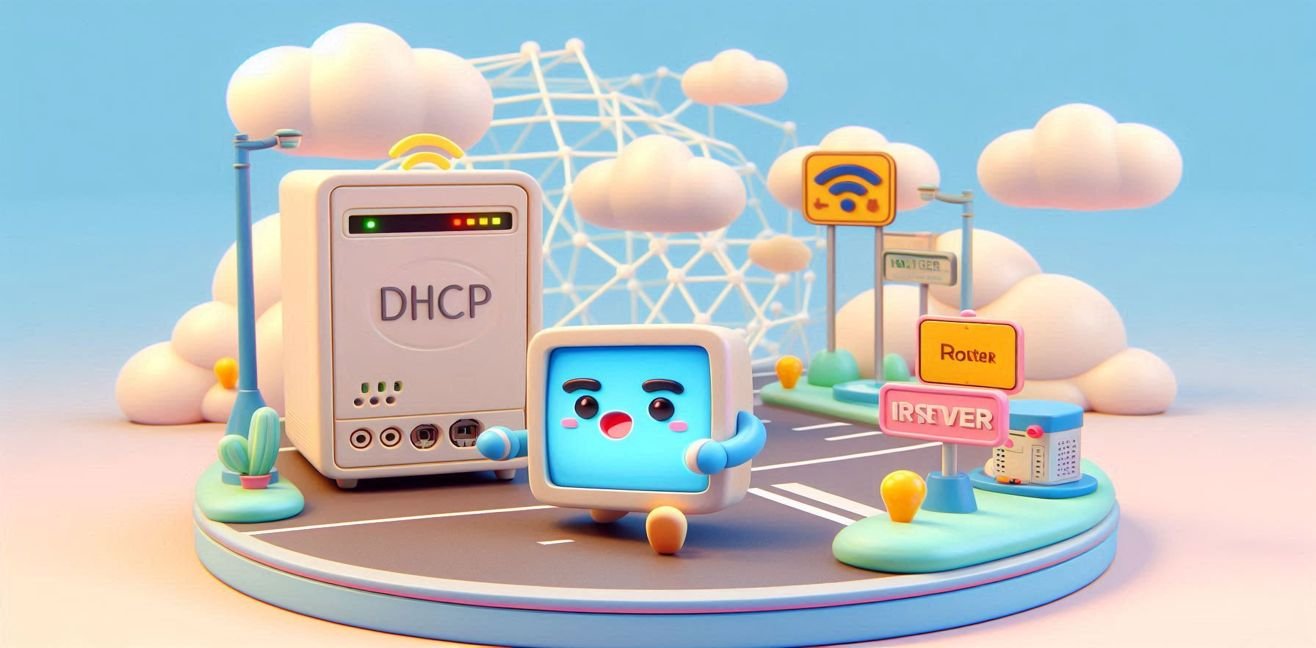💻📡 “Who am I? A device without an IP… but not alone!”
🎬 Scene 1: The Awakening of a Device
Morning breaks…
The laptop opens its eyes (a.k.a. BIOS finishes), the operating system wakes up…
And the first thing it does?
“Is there LAN, LAN?!” 😄
As a newly awakened device, it has one concern:
“Where is my IP address?? Who am I, what subnet do I belong to??”
And so begins the journey: the DHCP journey…
🛸 Scene 2: DHCP Discover – “I’m here!”
The moment the device connects, its first digital cry echoes across the network:
DHCP Discover!
It’s like saying “Hey everyone, does anyone have an IP for me?”
This is a broadcast message.
It shouts so the whole network hears:
“I’m new here, I have no IP, help me out!”
🤵 Scene 3: DHCP Offer – “Welcome, I have an address for you!”
As soon as a DHCP server hears this cry for help, it straightens its tie, puts on a tuxedo, and replies with a serious yet gentle tone:
“Here you go, how about 192.168.1.42?”
“Subnet mask, gateway, DNS – all on the house!”
This is the DHCP Offer message.
The server is like a real estate agent offering you not just an IP, but a beautifully furnished network configuration. 🏡✨
📩 Scene 4: DHCP Request – “I like this one, I’ll take it!”
The device politely responds:
“Oh, great offer – I love it. I’m accepting.”
And it sends a DHCP Request message.
But beware! This message is also a broadcast, because it’s subtly telling other DHCP servers:
“I’ve made my choice, this IP is mine now. Back off.”
🏁 Scene 5: DHCP ACK – “Alright, you’re official now!”
And finally…
The server nods and says:
“Deal! Here are your official documents. This IP is yours now.”
This is the DHCP ACK (acknowledgement) message.
Now the device has an identity.
Its passport is stamped.
It’s been officially accepted as a citizen of the network. 🎉
🧽 BONUS: Leave the IP Clean, Say Goodbye When You Leave!
When a device is leaving the network, it whispers to the DHCP server:
“I’m leaving… you can give my IP to someone else.”
This is the DHCP Release message.
Polite devices do this.
The others? They leave behind a mess… 😔
📌 Tiny Tech Corner: DHCP Messages Summary
| Message | Meaning |
|---|---|
| DHCP Discover | “I’m here, looking for an IP!” |
| DHCP Offer | “Here’s my offer: Take this IP!” |
| DHCP Request | “I’ve chosen this IP, please confirm!” |
| DHCP ACK | “Alright, it’s yours now!” |
| DHCP NAK | “Nope, that IP won’t work, try again.” |
| DHCP Release | “I’m leaving, releasing my IP.” |
🎈 Conclusion: Just an IP? No, an Identity!
What identifies you on every network, lets you befriend other devices, and makes communication possible?
An IP address.
And its hero?
DHCP.
Without it, devices would be homeless, subnets would be chaotic, and pings would be lost.
💡 Mini Tip:
That moment when your internet doesn’t come back right after restarting the modem?
That’s probably your poor device silently crying while trying to get a new IP. 😄
❤️ Final Words:
The journey of an IP address is just like our lives:
We are born (Discover), receive offers (Offer), make choices (Request), get accepted (ACK), and one day say goodbye (Release).
And in every network, a DHCP waits for us.
May your network path always be open, dear device! 🌐✨




